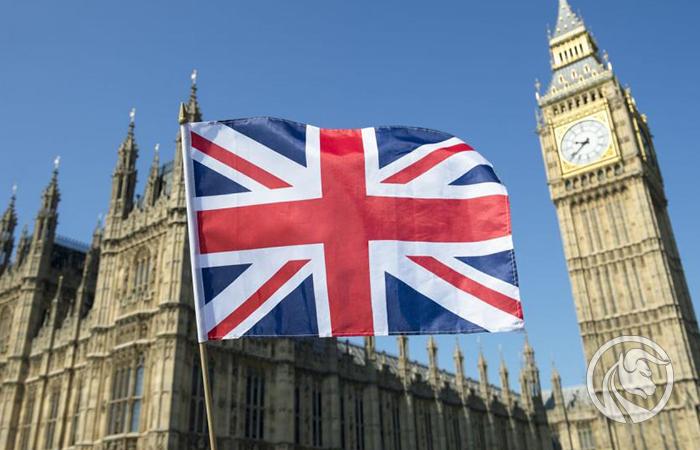Bank of England, Bank of Japan… and the risk of widespread market disruption
Although The emergency bond purchase by the Bank of England provided support to the pound recently, there are hardly any indications to maintain a positive outlook for UK assets overall, unless the government changes course on planned fiscal stance.
In fact, the Japanese authorities are in a better position to defend their currency than the British government, given the better position of their reserves. While the UK's problem is its own fault, the overriding theme of tightening global liquidity conditions still poses the risk of wider market disruption.
The aggressive tightening of monetary policy by the US Federal Reserve and this year's relentless rise in the value of the US dollar are currently translating into a tightening global financial condition, and their effects are visible in global financial markets.
However, it is still questionable to what extent this can be blamed on the events in the UK. While the Fed tightening policy remains an overarching topic, the UK problem is largely due to its own fault. While buying bonds by Bank of England it is somewhat reminiscent of the actions of the Bank of Japan, its motivation is completely different, and the results are likely to be quite different as well.
Motivation
Extensive bond buying operations by Bank of Japan reflect the drive to increase inflation. Over the past twenty years, headline inflation in Japan has averaged below 1% and core inflation has been negative. According to the last reading in August, it amounted to 3%, above the Bank of Japan's target of 2%, but the wage pressure remains limited.
While inflation in the UK is almost three times higherand the Bank of England's plan to start buying long-term government bonds was a necessary emergency measure to support pension funds that may have been on the brink of default due to the surge in government bond yields due to fiscal concerns following the announcement of the new government's mini-budget.
Weaknesses
Japan's fiscal and current accounts are also not in the best shape, and the country has enormous external debt. However, it also has huge foreign exchange reserves of over $ 1,2 trillion at the end of August. This corresponds to 20% CBA and import coverage for over 18 months. Of these, approximately $ 136 billion are deposits with foreign central banks that can be used immediately for intervention.
Therefore, while the Japanese yen remains vulnerable due to double deficits and high debt levels, impressive foreign exchange reserves still provide the Japanese government with some ammunition to intervene against the excessive pace of yen depreciation.
Meanwhile, Britain's problem is not only high inflation, but also a double deficit and the weak position of foreign exchange reserves. However, the UK's foreign currency debt levels are lower, which may be one of the reasons for the low level of foreign exchange reserves. As we mentioned in the previous article, the UK's net foreign exchange reserves of $ 100 billion are also sufficient to cover only two months of imports, roughly the equivalent of 3% of GDP compared to 20% for Japan and 115% for Switzerland. As a result, the room for maneuver to support the pound sterling is much less.
Threats to the pound sterling and British assets
The pound has undoubtedly recovered somewhat since the massive sell-off following the announcement of the fiscal plan. It was "temporarily" supported by the Bank of England's bond purchase program which led to a global stall in yield growth. Moreover, the rebalancing at the end of the month and quarter probably contributed to limiting the appreciation of the dollar following a significant appreciation of the US currency in this quarter. To be clear, the Bank of England did not perform a "rate reversal" but rather acted as a lender of last resort for national pension funds and there is hardly any indication to maintain or assume a positive outlook for UK assets.
UK assets are likely to remain under pressure as long as the government maintains denial. Even an emergency rate hike seems unlikely to support pound sterling or government bonds at this point, as it would spell panic and divergent fiscal and monetary policies that would further undermine general confidence in the economy and policy pursued. Meanwhile, the markets currently price in an interest rate hike by the Bank of England by nearly 150 bp at its meeting on November 3. This is an exceptionally large amount and will mean a significant problem for the British economy.
Threat to the global effect of contagion
The UK is starting to pose significant credit risk not only for pound-denominated assets but also for the rest of the world, especially the euro area, as my colleague Chris Dembik pointed out in his article. There may be some kind of contagion effect in the euro area credit market. There is also a risk that liquidity will begin to evaporate from other markets as well, raising the inevitable question: who might be next?
The Chinese currency has also depreciated dramatically in recent times, but the People's Bank of China has many tools at its disposal, and China's credit impulse is also positive. South Korea has already intervened to support its currency, and more economies are likely to follow if the current situation continues. The G20 meetings on November 15-16 will be particularly important not only because of geopolitical information, but also because of possible shared concerns about the impact of global policy tightening and the strong dollar.
Until at least until, if not longer, there is insufficient evidence for the US Treasury Department to intervene to support a weakening pound, yen, or any other currency. Most officials in the US administration, including Treasury Secretary Yellen, show no urgent need for action. It is therefore likely that more widespread market disturbances and increased risks to global financial stability will occur, beyond the financial turmoil in the United Kingdom and Japan.
More Saxo analyzes are available here.
About the Author
 Charu Chanana, market strategist in the Singapore branch Saxo Bank. She has over 10 years of experience in financial markets, most recently as Lead Asia Economist in Continuum Economics, where she dealt with macroeconomic analysis of Asian emerging countries, with a focus on India and Southeast Asia. She is adept at analyzing and monitoring the impact of domestic and external macroeconomic shocks on the region. She is cited frequently in newspaper articles and appears regularly on CNBC, Bloomberg TV, Channel News Asia, and Singapore's business radio channels.
Charu Chanana, market strategist in the Singapore branch Saxo Bank. She has over 10 years of experience in financial markets, most recently as Lead Asia Economist in Continuum Economics, where she dealt with macroeconomic analysis of Asian emerging countries, with a focus on India and Southeast Asia. She is adept at analyzing and monitoring the impact of domestic and external macroeconomic shocks on the region. She is cited frequently in newspaper articles and appears regularly on CNBC, Bloomberg TV, Channel News Asia, and Singapore's business radio channels.






















![Forex Club – Tax 9 – Settle tax on a foreign broker [Download the Application] Forex Club - Tax 9](https://forexclub.pl/wp-content/uploads/2024/02/Forex-Club-Podatek-9-184x120.jpg?v=1709046278)
![Trading View platform – solutions tailored to the needs of traders [Review] trading view review](https://forexclub.pl/wp-content/uploads/2024/03/trading-view-recenzja-184x120.jpg?v=1709558918)
![How to connect your FP Markets account to the Trading View platform [Guide] fp markets trading view](https://forexclub.pl/wp-content/uploads/2024/02/fp-markets-trading-view-184x120.jpg?v=1708677291)
![How to invest in ChatGPT and AI? Stocks and ETFs [Guide] how to invest in chatgpt and artificial intelligence](https://forexclub.pl/wp-content/uploads/2023/02/jak-inwestowac-w-chatgpt-i-sztuczna-inteligencje-184x120.jpg?v=1676364263)


![WeWork – the anatomy of the collapse of a company valued at $47 billion [WeWork, part II] wework bankruptcy story](https://forexclub.pl/wp-content/uploads/2024/04/wework-bankructwo-historia-184x120.jpg?v=1711729561)
![Adam Neumann – the man who screwed up Softbank [WeWork, part AND] adam neumann wework](https://forexclub.pl/wp-content/uploads/2024/04/adam-neumann-wework-184x120.jpg?v=1711728724)





![How to transfer shares to another brokerage office [Procedure description] how to transfer shares to another brokerage house](https://forexclub.pl/wp-content/uploads/2024/03/jak-przeniesc-akcje-do-innego-biura-maklerskiego-184x120.jpg?v=1709556924)

![The most common mistakes of a beginner trader - Mr Yogi [VIDEO] Scalping - The most common mistakes of a beginner trader - VIDEO](https://forexclub.pl/wp-content/uploads/2024/03/Scalping-Najczestsze-bledy-poczatkujacego-tradera-VIDEO-184x120.jpg?v=1711601376)
![Learning patience: No position is also a position - Mr Yogi [VIDEO] Scalping - Learning patience - No position is also a position - VIDEO](https://forexclub.pl/wp-content/uploads/2024/03/Scalping-Nauka-cierpliwosci-Brak-pozycji-to-tez-pozycja-VIDEO-184x120.jpg?v=1710999249)
![When to exit a position and how to minimize losses - Mr Yogi [VIDEO] Scalping - When to exit a position and how to minimize losses - VIDEO](https://forexclub.pl/wp-content/uploads/2024/03/Scalping-Kiedy-wyjsc-z-pozycji-i-jak-minimalizowac-straty-VIDEO-184x120.jpg?v=1710336731)









